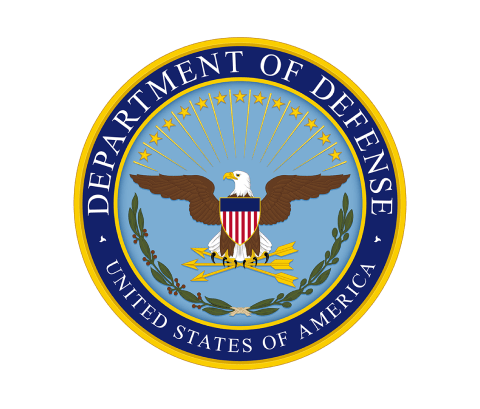
A Future Doctor on the Ball: Dream Award Scholar Anysia Boozer
Filed In
- Student Success Stories
Topics
- Dream Award
- Student Success
To say Anysia Boozer had a full schedule in high school is an understatement. She challenged herself to excel in academics, while juggling a part-time job, clubs, and playing basketball at the varsity level. Growing up loving the sport as long as she can remember, she earned the coveted position of shooting guard—and just like her position on the court requires confidence and diverse skills, Anysia has developed the talent and drive to succeed in school and life.
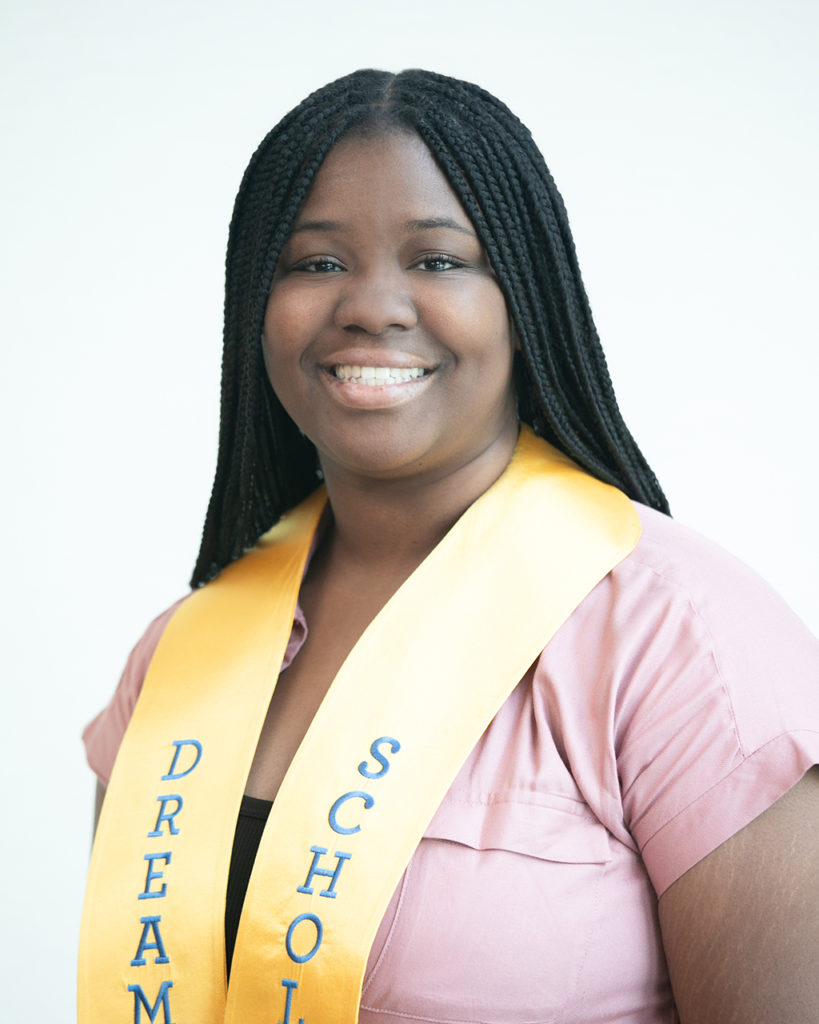
Even with all her high school activities, she maintained a 4.52 GPA and had a big heart to help others. When she noticed the large number of high school students staying in a local children’s shelter, Anysia and another student spoke to the students and asked how they could help. One of their top requests was for more homecooked meals—so Anysia and her classmate founded a group called Cartersville Fills the Need. They recruited a group of mentors to help fund their efforts, and then went to the store once a month to shop and prepare a homemade meal for their classmates facing struggles.
But despite her accomplishments and her commitment to service, Anysia dealt with her own difficulties. When she was just 12 years old, her dad went to prison. She said she didn’t really understand what was happening, but she knew she missed her dad and felt disconnected from his side of the family. Her mom shouldered an extra burden, explaining what was going on and providing support for Anysia, her older brother and her younger sister.
“One of the biggest challenges was to suddenly be growing up in a single parent household, as there only so much one parent can do,” said Anysia. “She did her best to help me when I struggled with classes and busy with school activities and know it was much for her to handle. I am very grateful to her for my success.”
The family did their best to stay connected, visiting Anysia’s father every few months despite the four-hour drive and the hour-long process to get admitted inside. Her dad wrote letters, always encouraging her to work hard, to succeed in school and to never give up.
“He stressed that my education was my best way to get ahead in life,” Anysia said, and after he was released, they managed to rebuild their relationship.
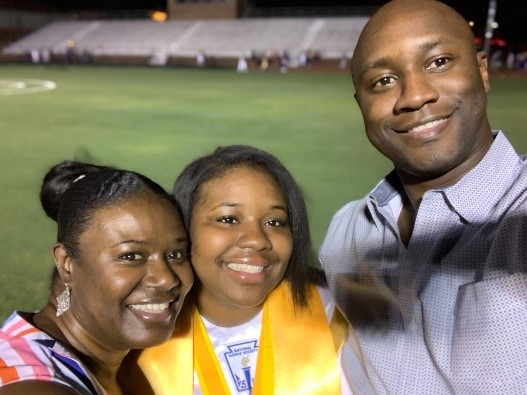
She also credits another mentor at school. “I’m grateful to have a great mentor, Ms. Audrey Anderson, from the county’s REACH program,” said Anysia. “She helped me with my high school journey, applying for college [and] preparing for the ACT and SAT.”
Anysia decided on Mercer College, as she wanted to stay in the state, and when she toured there she saw they have a nice campus, the tour guides and administration were nice and other students were complimentary. But even with an ideal fit, when she started college, she sometimes had doubt and experienced imposter syndrome: the feeling like you are not performing as well as others and don’t deserve to be there.
“In high school, you rise to be among the very best in academics but when you go to college and you are in a rigorous program that is hard to get in to, you are surrounded by really bright students and you will occasionally struggle and feel that you’re not doing as well as you did in high school or struggling learning a new concept, you feel bad,” she said. “To overcome these feelings, I had to realize everyone has their own path and timeframe for education. If others end up graduating a semester or year earlier, that doesn’t mean I won’t get where I need to be.”
Today, the first-generation student is a junior at Mercer, majoring in neuroscience with a minor in sociology. She has had an interest in medicine since 7th grade science classes and a dream to help others; her major will give her a broad view of key topics that will be beneficial when applying for medical school. She chose her minor as a complement, giving her a chance to learn about interactions between people and society.
Anysia first learned about the Dream Award the summer before her freshman year of college when searching for scholarships and visited the Scholarship America website. While she wasn’t yet eligible to apply until she had been a college for a year, she made a note and added it to her calendar. When she got the alert and was now eligible, she applied.
“The Dream Award has had a huge impact monetarily on my life, helping to close the gap between my aid and need,” she said. “Beyond that, it was beneficial in that it connected me to lots of people in positions that I hope to be in one day, and meeting other students who have worked just as hard as I have and have similar goals. It’s created a very big support system I have been adopted into,” she said.
On campus, she is an active member of the Minority Association of Pre-medical Students (MAPS), which she feels provides valuable support to a smaller demographic of the healthcare industry that isn’t always represented.
“It’s especially helpful to speak with other juniors and seniors applying to medical school,” noted Anysia. “I’m also on the board for community service work we do, which has been inspiring. If students ever feel they are struggling, I encourage them to seek help from counselors, advisors, teachers, campus clubs, and other students as part of a developing a strong support system. There is always someone there to help you through challenges and persevere.”
Anysia still finds time to hit the basketball court, too, as part of the campus club team. It’s less time-consuming than varsity hoops—which is especially important as she prepares to take a special prep course this spring, followed by the MCAT test at the end of the year and, hopefully, Mercer’s medical school.
“My ultimate goal was to be in a career helping people. Growing up going to the doctor or dentist, I would always look around to try see people who looked like me, [and] it was always hard to find someone,” she said. “I want to be part of the representation and improvement of more African American doctors in the healthcare industry. I want to be a familiar face for those seeking professionals that look like them.”
 hbspt.cta.load(241375, '746edbd4-b825-43ac-a464-de473edd7a44', {"useNewLoader":"true","region":"na1"});
hbspt.cta.load(241375, '746edbd4-b825-43ac-a464-de473edd7a44', {"useNewLoader":"true","region":"na1"});
Related Articles
Browse All
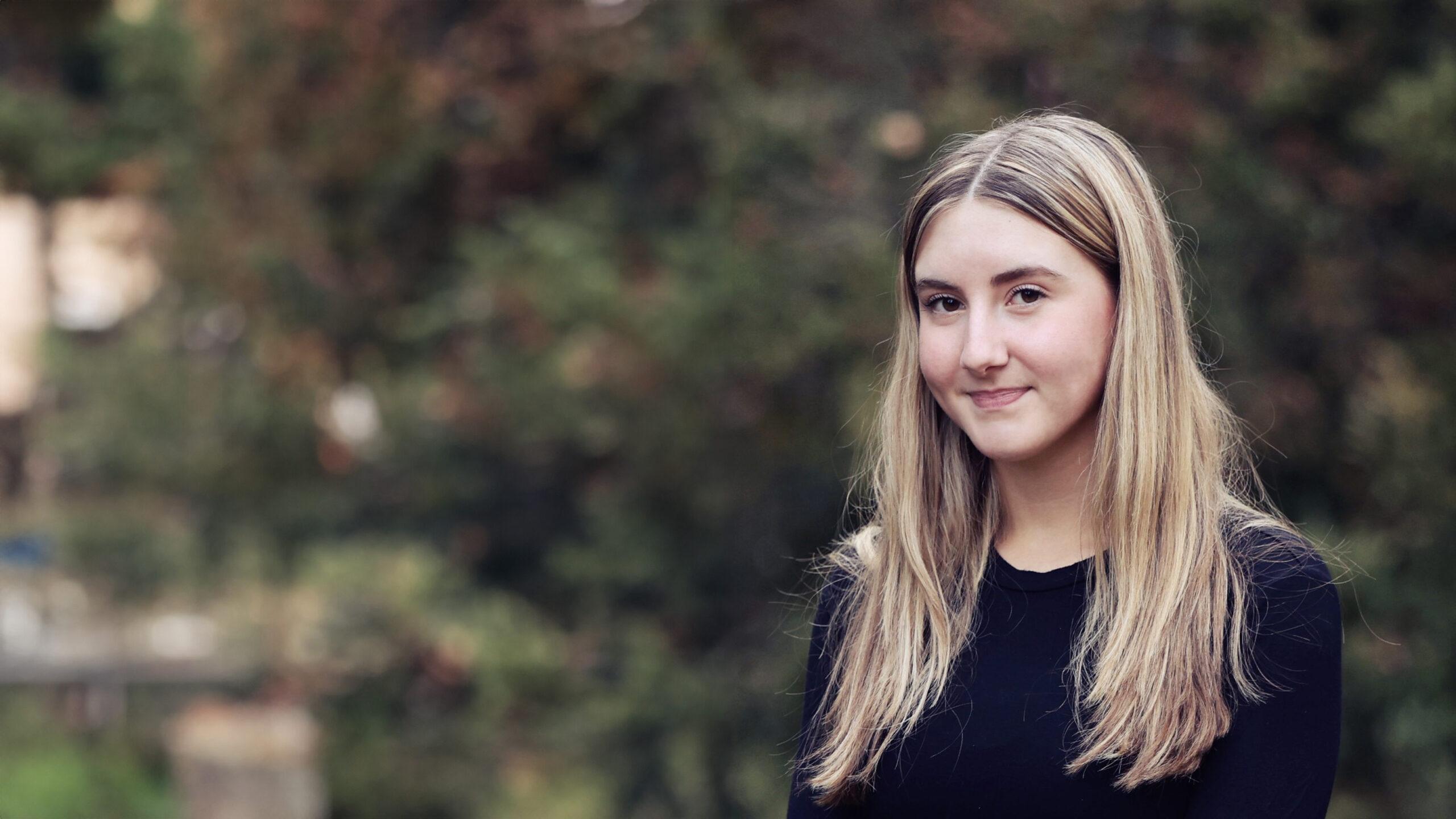
Scholarship Success Journeys: Oxford Law Student Ashley Truban
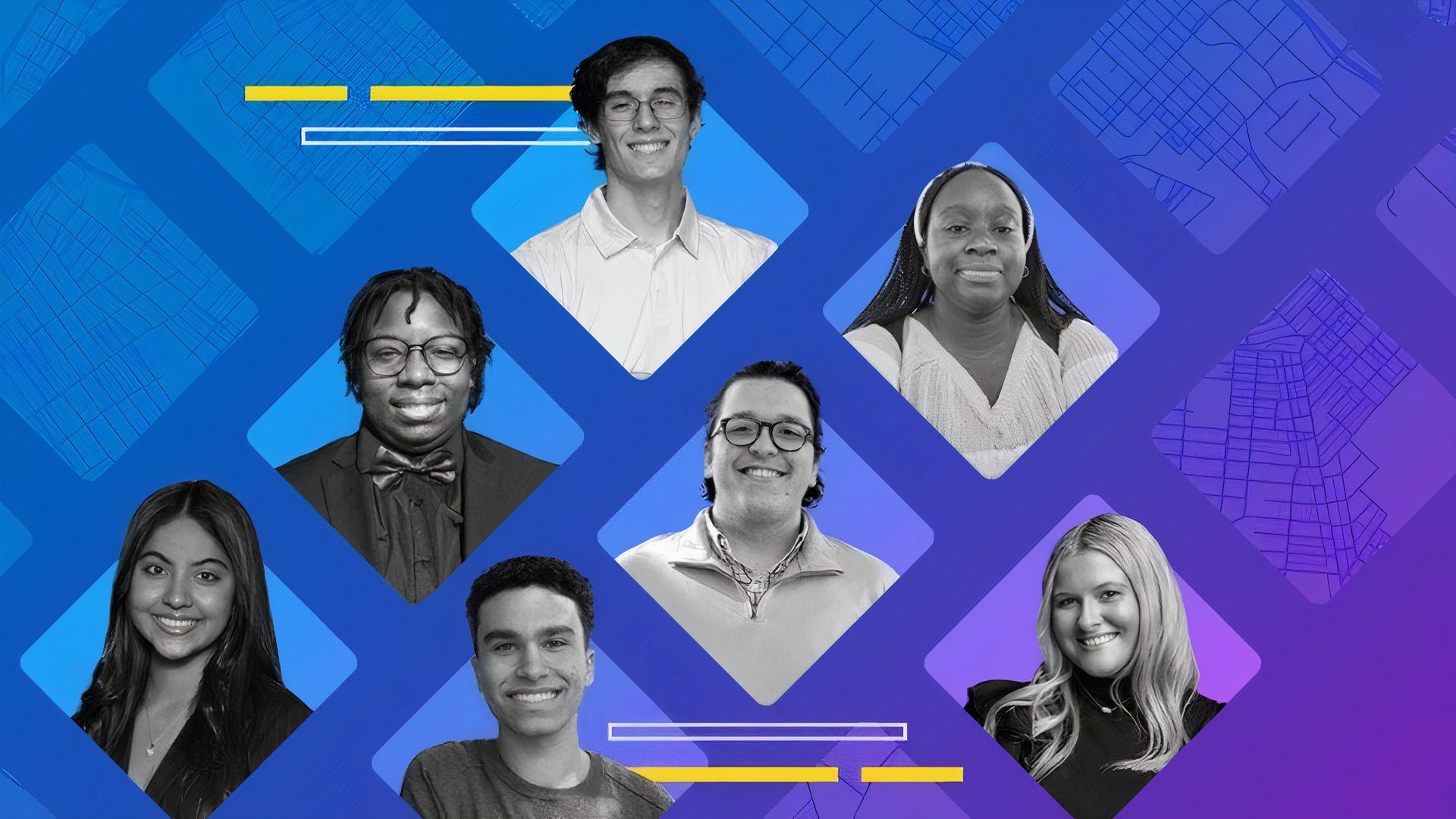

Our team is here to help you achieve your goals and build your custom scholarship program.